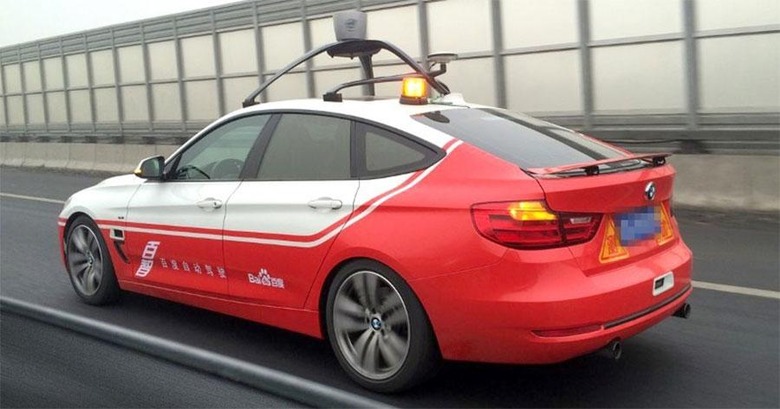China slams brakes on autonomous car public testing
Public testing of autonomous cars in China has been put on hold, with regulators insisting automakers must wait until the government has figured out the necessary regulations. Several self-driving vehicle projects are underway in the country, but the moratorium means that, for now, prototypes can only be trialled on private facilities.
The decision was announced by She Weizhen, head of the automotive division of the Chinese Ministry of Industry and Information Technology, at an event this week. According to Weizhen, a preliminary draft of the regulations is already being considered by both the Ministry and Chinese police.
However, she did not indicate just how long research teams and car manufacturers might have to wait before that draft becomes finalized.
While teams across the world are experimenting with different ways to relegate the driver to passenger status, the legal framework within which self-driving cars operate is patchy at best.

In the US, for instance, the California DMV was challenged by the government to figure out a set of rules for autonomous testing, only to realize that it was going to be a harder challenger than expected. As it stands, individual states have independent positions on what degree of self-driving vehicle technology is appropriate for public highways.
For China, meanwhile, big names like Volvo, LeEco, and Baidu have all been working on similar systems, not to mention talking up how straightforward their integration might be. Baidu, earlier this year, argued that only minimal changes would be required for existing infrastructure to play nicely with autonomous traffic.
That's all on hold now, though, as teams await to hear exactly what Chinese regulators will demand.
NOW READ: Can self-driving cars really cure congestion?
One likely possibility is some sort of autonomous testing license, similar to that which some US states are pushing for, and which would attempt to ensure that whoever is behind the wheel is ready to resume control should the car's systems be overwhelmed at any point.
There are strong pressures encouraging the Ministry of Industry and Information Technology to decide sooner rather than later, mind, not least the government's own goals of developing higher-tech industries as the market for cheap factory work grows more competitive. Autonomous vehicles – like the self-driving bus Mercedes tested publicly for the first time recently – could also help address overcrowding on Chinese roads.
SOURCE Bloomberg
